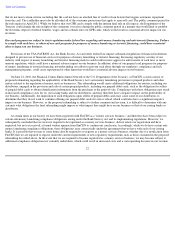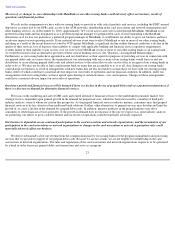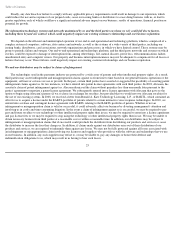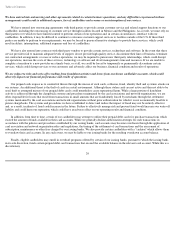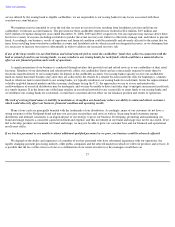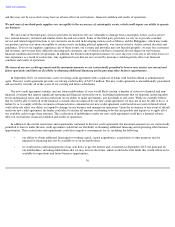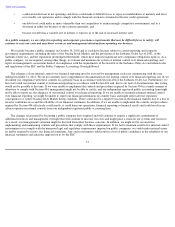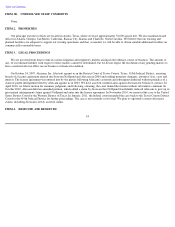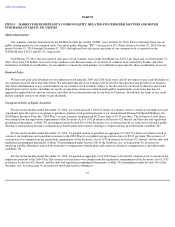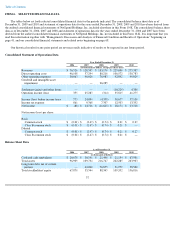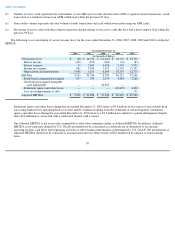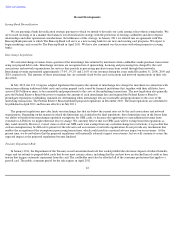NetSpend 2010 Annual Report Download - page 36
Download and view the complete annual report
Please find page 36 of the 2010 NetSpend annual report below. You can navigate through the pages in the report by either clicking on the pages listed below, or by using the keyword search tool below to find specific information within the annual report.
Table of Contents
Risks Related to Ownership of Our Common Stock
We have a limited trading history, and our stock price may be volatile.
Prior to the consummation of our initial public offering in October 2010, our common stock was not listed on a national exchange or
publicly traded. As an issuer which has recently become listed on a national exchange, the market price of our common stock has been and
could continue to be subject to wide fluctuations in response to, among other things, the factors described in this "Risk Factors" section or
otherwise, and other factors beyond our control, such as fluctuations in the valuations of technology companies perceived by investors to be
comparable to us. These fluctuations have often been unrelated or disproportionate to operating performance. If any of the foregoing occurs, it
could cause our stock price to fall and may expose us to securities class action litigation. Any securities class action litigation could result in
substantial costs and the diversion of management's attention and resources.
Our stock price could decline due to the large number of outstanding shares of our common stock eligible for future sale.
Sales of substantial amounts of our common stock in the public market, or the perception that these sales could occur, could cause the
market price of our common stock to decline. These sales could also make it more difficult for us to sell equity or equity-related securities in
the future at a time and price that we deem appropriate.
As of December 31, 2010, we had 88,170,381 shares outstanding. Approximately 69,345,245 shares, or approximately 79% of our
outstanding shares at that date, are subject to lock-up agreements entered into by our directors, executive officers, and stockholders with the
underwriters in connection with our initial public offering in October 2010. Upon expiration of the lock-up period, which will occur on or
around April 16, 2011, all of those shares, other than shares held by our affiliates, will become eligible for sale in the public market without
restriction. Shares held by our affiliates will also become eligible for sale, subject to the restrictions under Rule 144 of the Securities Act of
1933, as amended, or the Securities Act. In addition, under our amended and restated registration rights agreement, certain of our stockholders
will have the ability to require us to file a registration statement with respect to the registration of their shares under the Securities Act. If we
register their shares of common stock following the expiration of the lock-up agreements, these stockholders could sell those shares in the
public market without being subject to the volume and other restrictions of Rule 144.
Provisions in our charter documents and under Delaware law may prevent or delay a change of control of us and could also limit the
market price of our common stock.
Certain provisions of Delaware law and of our certificate of incorporation and bylaws could have the effect of making it more difficult for
a third party to acquire, or of discouraging a third party from attempting to acquire, control of us, even if such a change in control would be
beneficial to our stockholders or result in a premium for your shares of our common stock. These provisions may also prevent or frustrate
attempts by our stockholders to replace or remove our management. These provisions include:
• limitations on the removal of directors;
• the ability of our board of directors, without stockholder approval, to issue preferred stock with terms determined by our board
of directors and to issue additional shares of our common stock;
• advance notice requirements for stockholder proposals and nominations;
• the inability of stockholders to act by written consent or to call special meetings; and
• the ability of our board of directors to make, alter or repeal our bylaws.
32


